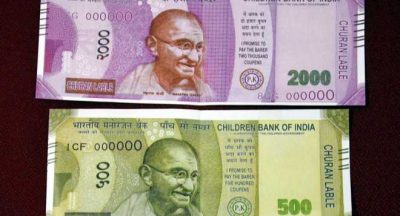Op-ed: The five consumer groups buying fake brands in China—and what to do about them
Associate Professor in Marketing Lars Bergkvist at the University of Nottingham in Ningbo and Li Wanzhen at the EDHEC Business School explain why knockoff goods remain a resilient draw for so many of China’s consumers. Fake brands are still ubiquitous in China, on sale in well-known places such as the Silk Market in Beijing and the “fake market” on West Nanjing road in Shanghai. In the streets touts try to lure punters into “secret” shops, and there are countless online outlets offering shoppers “replica” products. Fake brands cost the makers of luxury and other branded products billions of dollars every year in lost sales and, more importantly, in eroded brand equity as those who are knocked-off become less attractive to consumers.
Related Posts
Five held for printing and circulating fake Indian Currency Notes
A racket of printing and circulating Fake Indian Currency Notes (FICN) was busted...
Illicit tobacco fight’s weak link
Just off the main drag of the St. Regis Mohawk Indian reservation hugging the...
Politicians debate relationship of cigarette taxes, smuggling
The team of police officers that wrestled Eric Garner to the ground last July in...
Mumbai: Two held for selling fake mobile products
Police said the accused would sell these as original parts of branded mobile...




